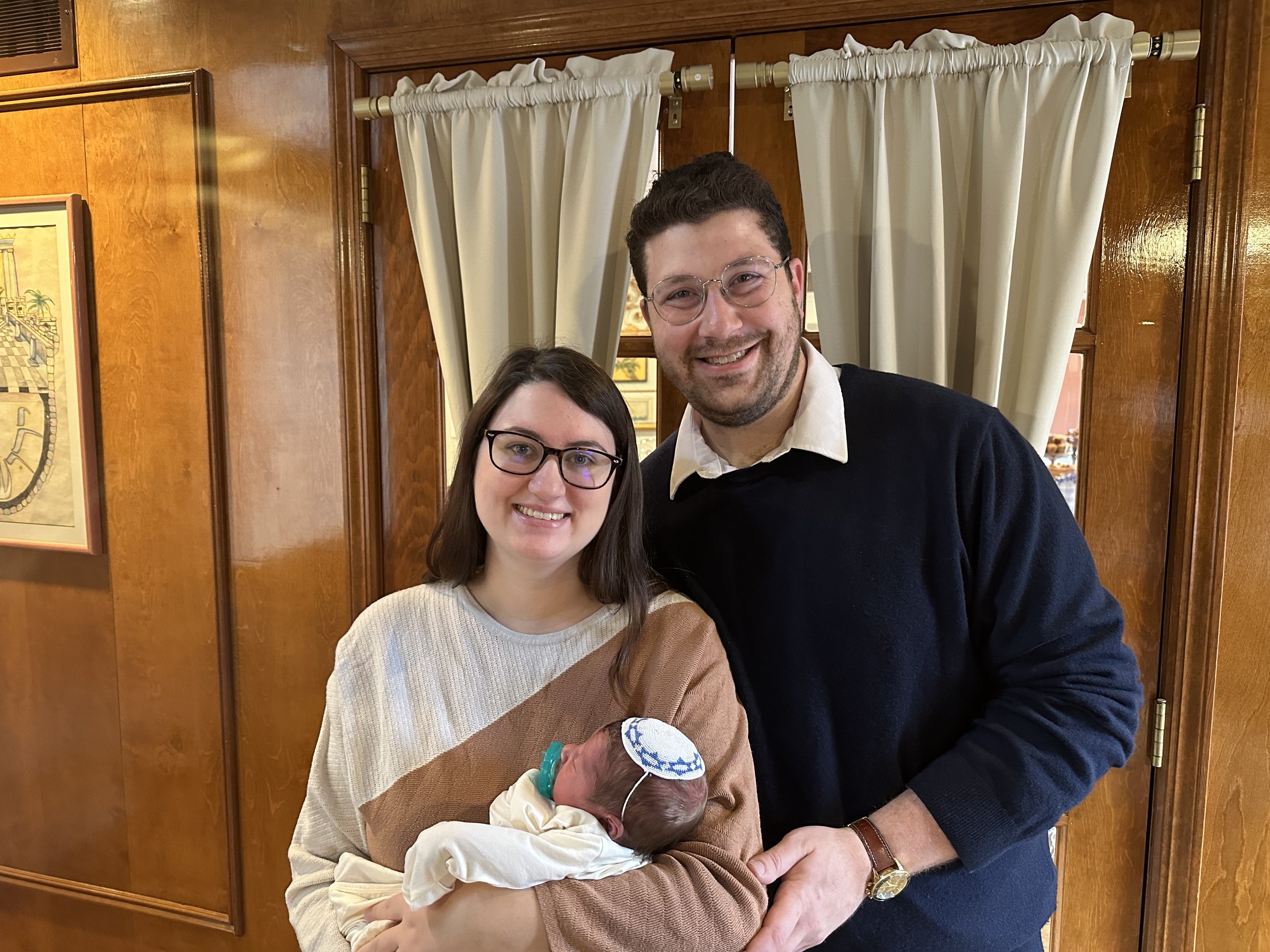The Ceremony
Dr. Rawdin prefers to arrive early and prepare the infant for the circumcision prior to the beginning of the ceremony. This not only will help make the physical act of mila more efficient, but it will also help keep the infant calm, as part of the preparation is to apply a local anesthetic to the area. By administering the anesthetic before the ceremony, it has time to take effect.
He follows the circumcision with a brief naming ceremony, a few more prayers to finish the Berit Mila, and then the motzi is recited, leading into the seudat mitzvah or celebratory meal.
To make the entire Berit Mila more personal and unique to each family, Dr. Rawdin likes to build on the basic Berit Mila service by including small notes or comments that are learned by meeting/talking with the parents prior to the ceremony. The initial newborn period is a very special time, but it can be very hectic and full of emotions. The Berit Mila celebration should be a time for parents to relax and enjoy themselves.
In addition to the roles of the parents and the mohel, several family members take on honorary roles during the ceremony. Included in a packet that Dr. Rawdin will send to you is an explanation of the different honors that can be bestowed upon your loved ones. For instance, grandparents can read a special prayer, and other family members can have the honors of bringing the infant into the room (the kvatter/kvatterin) and holding/comforting him (the sandek) during the ceremony.
One of Dr. Rawdin’s goals is to help the family make this an extra special moment that is remembered with happiness and joy. The more personal it is, the more it will be remembered. A Berit Mila is only as meaningful and memorable as the content and personal touch that goes into its preparation. Please think about this, and let Dr. Rawdin know how he can help you to achieve this during the ceremony.









